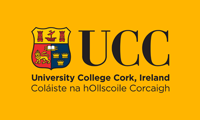News
New UCC Professor of Gastroenterology and Clinical Investigator at APC Microbiome leads development of first AI histology predictive tool for Ulcerative Colitis management

Artificial Intelligence enabled histological prediction in Ulcerative Colitis represents significant advancements in therapy assessments, research trials and clinical practice - improving speed, efficiency and accuracy.
An international team of scientists led by Prof Marie.tta Iacucci has developed an artificial intelligence (AI) computer-aided diagnosis system that speeds up, simplifies, improves accuracy and minimises errors in evaluating and predicting outcomes of Ulcerative Colitis (UC).
Prof. Iacucci, an internationally renowned gastroenterologist and leading researcher in the field of AI and ‘endo-omics’ (that fuses endoscopic and histologic information with ‘multi-omics data), recently joined UCC and APC Microbiome Ireland (APC) – a world-leading SFI research centre based in University College Cork (UCC) as Clinical Investigator and Professor of Gastroenterology. In her new roles, Prof Iacucci will also be involved in research with other UCC based SFI centres IPIC/Tyndall and INSIGHT.
This new AI based diagnostic system can change how clinicians evaluate biopsies with a faster, less expensive and objective assessment tool while being adaptable for a wider field of tissue applications in pathology worldwide. Ulcerative colitis (UC) is a common chronic inflammatory bowel disease (IBD) that induces inflammation and ulcers in the digestive tract. It can lead to a range of complications, ill health and suffering and has no known cure, although several treatments can help alleviate symptoms and reduce or eliminate inflammation. Clinical assessments use histopathology as the most effective means of detecting and identifying inflammation and remission. Traditional UC assessment involving microscopic inflammation is typically complex, time and training intensive, expensive and subject to high interobserver variability.
Prof. Marietta Iacucci commented: “This novel AI system can be of great help to pathologists and clinicians in identifying and distinguishing between inflammation and remission - the primary goal in UC treatment. It offers a faster, less expensive and more accurate evaluation methodology, and we believe is set to alter how UC clinical assessments and research trials are conducted.”
In their analysis, the team used a sample of 535 biopsies drawn from 273 patients spread across 11 different international centres - providing the benefit of a large sample size and helping to optimise data fit and suitability for the computer model. Between 66%-75% of the biopsies were in histologic remission. The AI-based CAD system was used to analyse and detect UC disease presence, predicting endoscopic inflammation at levels of 80% accuracy.
The tool's key and innovative feature is its ability to stratify and predict disease flare risk – a crucial assessment in UC observation - where it performed comparably to human pathologist assessments.
Subrata Ghosh, Chair and Head of Medicine, UCC and Deputy Director of APC said: “This AI-based CAD system provides a new tool that enables accurate identification of disease remission and provides accurate prognosis in UC management and treatment. We are excited about this development and believe it can radically change current clinical trial practice and help improve UC monitoring and prediction.”
++ENDS++
See also: APC Microbiome marks World IBD Day 2023


